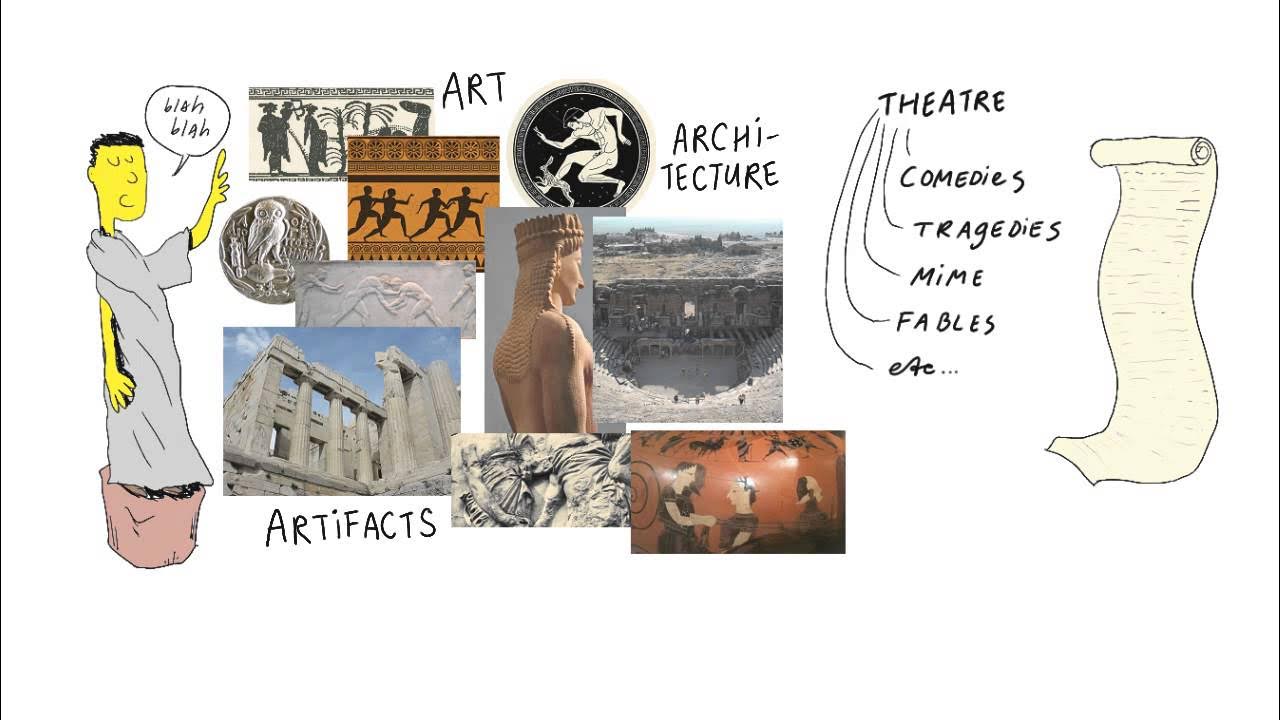Bài 1. Sơ lược về sự phát triển của Vật lí.(Chuyên đề 1: Vật lí trong một số ngành nghề. Sách CTST)
Summary
TLDRThe video explores the evolution of classical physics, starting with ancient Greek philosophers like Aristotle, who laid the foundation for scientific reasoning. It traces key developments, including Galileo's experimental approach and Newton's laws of motion and gravity, which revolutionized our understanding of the physical world. The script highlights the emergence of experimental physics, contributions from pioneers like Faraday and Maxwell, and the rise of quantum mechanics and relativity in the 20th century, focusing on the groundbreaking work of Einstein. It emphasizes how these advancements shaped modern science and technology, including innovations like GPS and quantum computing.
Takeaways
- 😀 Ancient Greek philosophers laid the foundation for the first science by combining observations and logical reasoning to study natural phenomena.
- 😀 Galileo Galilei pioneered experimental methods, laying the groundwork for experimental physics and transforming scientific thought in the 16th century.
- 😀 Isaac Newton inherited and improved upon Galileo's experimental methods, forming the basis for classical mechanics and establishing laws of motion and gravitation.
- 😀 Newton's laws provided a mathematical framework for understanding not only everyday movements but also celestial bodies and planetary motion.
- 😀 Newton's theory led to significant discoveries, including the prediction of Halley's Comet, which validated his gravitational laws.
- 😀 Newton's invention of calculus became an essential tool for solving problems in physics, particularly for understanding motion.
- 😀 Classical physics branched into fields such as mechanics, optics, thermodynamics, and electromagnetism, each studying different aspects of matter and energy.
- 😀 Classical mechanics, based on Newton's laws, explains macroscopic phenomena but fails to explain behaviors at atomic or light speed scales.
- 😀 The advent of modern physics in the early 20th century, driven by quantum mechanics and relativity, challenged and expanded the understanding of the physical world.
- 😀 The development of quantum mechanics and Einstein's theories of relativity revolutionized physics, enabling groundbreaking technologies like lasers, GPS, and quantum computing.
Q & A
What was the role of ancient Greek philosophers in the development of science?
-Ancient Greek philosophers played a key role in the development of science by observing natural phenomena and combining logic and reasoning to establish principles, inductive methods, and frameworks for understanding the world, laying the foundation for the first science on Earth.
Who was Galileo Galilei and how did he contribute to scientific methodology?
-Galileo Galilei was a 16th-century scientist who introduced experimental methods to test hypotheses under various conditions. His work laid the foundation for the scientific method, marking a revolutionary change in scientific thinking.
How did Isaac Newton build upon Galileo's work?
-Isaac Newton inherited and refined Galileo's experimental methods, using them to develop classical mechanics. His work established a mathematical framework for understanding motion and gravitation, which helped form the basis of classical physics.
What were some of the key early achievements in experimental physics?
-Key achievements include Galileo's invention of the telescope in 1609, which launched the era of space exploration, and Newton's discovery of the laws of motion and gravity, which became foundational to classical mechanics.
How did Michael Faraday contribute to the field of electromagnetism?
-Michael Faraday conducted experiments on electromagnetism and discovered the relationship between electric and magnetic fields, leading to the development of technologies like alternating current generators and the steam engine.
What were some of the major discoveries in classical physics?
-Major discoveries include Newton's laws of motion and universal gravitation, the invention of the telescope, and Faraday's work on electromagnetic induction, all of which paved the way for advancements in classical physics and industry.
Why was Isaac Newton's work on calculus important?
-Newton's invention of calculus provided a mathematical tool to describe the motion of objects. This led to significant progress in physics and mathematics, allowing scientists to explain complex phenomena such as planetary motion and the dynamics of objects in motion.
What is the relationship between classical mechanics and modern space exploration?
-Classical mechanics, especially Newton's laws, laid the foundation for predicting the motion of celestial bodies. This allowed scientists to predict the path of comets, launch space missions, and develop rocket technologies, contributing to the era of space exploration.
How did 20th-century developments like quantum mechanics and relativity challenge Newtonian physics?
-Quantum mechanics and relativity, which emerged in the 20th century, challenged Newtonian physics by introducing concepts that could explain phenomena at the atomic scale and at speeds near the speed of light, which Newtonian physics couldn't fully explain.
How did the discovery of the Michelson-Morley experiment affect our understanding of light?
-The Michelson-Morley experiment, which showed that the speed of light is constant regardless of the Earth's motion through the supposed ether, disproved the ether theory. This led to the development of Einstein's theory of relativity, which provided a new understanding of light and space-time.
Outlines

This section is available to paid users only. Please upgrade to access this part.
Upgrade NowMindmap

This section is available to paid users only. Please upgrade to access this part.
Upgrade NowKeywords

This section is available to paid users only. Please upgrade to access this part.
Upgrade NowHighlights

This section is available to paid users only. Please upgrade to access this part.
Upgrade NowTranscripts

This section is available to paid users only. Please upgrade to access this part.
Upgrade Now5.0 / 5 (0 votes)





